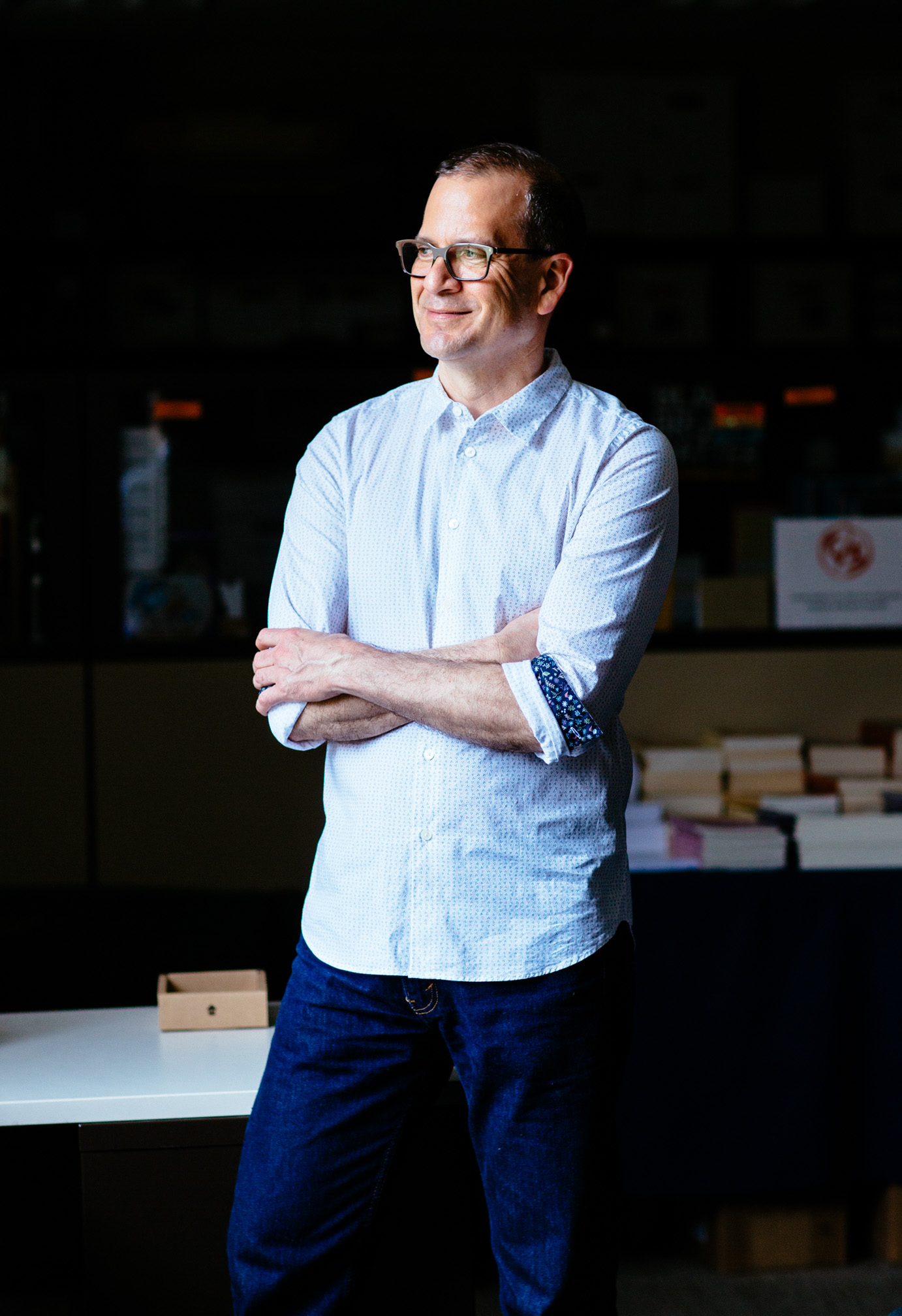
A man whose eclectic tastes — from lowbrow 1990s films like Showgirls to obscure Chicano playwrights — are well suited to academia, Noriega is nevertheless a different breed.
First, his capacity for work is seemingly never ending. Part of that might be attributed to his parents. His father started as a journalist in Miami for the Associated Press covering the Cuban revolution, and then went on to build a PR agency in Chicago, a town in which he ran for Mayor in the early 1990s. We could do a whole newsletter on him as well.
But part of Noriega’s drive is also to make his work echo beyond the walls of his ivory tower. It was something he learned from a mentor of his, Professor Tomás Ybarra-Frausto, at Stanford University. It was also a reaction to the dominant economic philosophy of his time: Reagan’s “trickle-down” economics. Why, he reasoned, should academics do hyper-specific research and then hope the benefits trickle down to the broader populace?
“I’m doing scholarship on art, and that clearly relates to museums, foundations and cultural centers,” he says. “You have a responsibility to make your work relevant, not just work in an area you think is relevant.”
Bridging the gap between academics and the “real world” isn’t just about intellectual exchange, it’s about being open to what that exchange may yield. And that’s why we wanted to bring Noriega’s story this week. A lifetime academic and the head of UCLA’s Chicano Studies Research Center, he’s broken the mold by exhibiting the curiosity and engagement towards life outside his world — traits that our group shares.
“I try to maintain a certain eclectic approach,” he told me. “Every few years, I try to do something completely unrelated to what I’m doing at that time.”
Exactly.

While a graduate student at Stanford, Noriega taught a class on Chicano film. He called up a columnist for the local San Jose Mercury News and got her to write about it every other week, enabling him to offer the young Chicano filmmakers he flew up to the Bay Area to speak to his class a little exposure as well. While at the University of New Mexico, he collaborated on a film series at the Whitney Museum of American Art.
“I don’t want to write about films no one’s ever seen, or publish essays in journals no one ever reads,” he says. “I wanted other people to see these films.”
This strategy reached its summit seven years ago with his contribution to Pacific Standard Time, an eight-month exhibition that profiled the birth of the Los Angeles art scene from 1945 to 1980. Together with two co-curators, Noriega contributed L.A. Xicano, which explored the contributions of Mexican-American artists in the region since 1945. The massive undertaking included four research-based exhibitions being held, concurrently, at three different museums.
Last fall, he wrapped up his second Pacific Standard Time exhibition (Home — So Different, So Appealing, on display at the Los Angeles County Museum of Art). The end of the exhibit dovetailed with a period of reflection for Noriega, one that he still very much finds himself in.
“I understand why it takes time to come to a certain understanding of yourself that’s not an ending,” he says. “It’s not learning a complete set of knowledge and skills, but getting a better understanding of what you do have at your disposal: the outlook it gives you, and the fact that other people are going to have different outlooks.
I find in some ways, it’s just a lot more relaxing. I don’t have anything to prove. I can get some closure in where I’m at, but I still have to go through that same process. For the past six months, I’ve been … trying to answer that question of what do I want to be when I grow up.”
In that sense, an accomplished academic is no different from someone who has raised three children and is wondering what’s next, or the career executive starting their first business. At one point in our conversation, Noriega spoke about the pact teachers and schools enter in with students over a 16-year block of time. He was talking about teenagers, but he could’ve been talking about any generation really.
“The long-term goal is to move the student from being someone who turns to a teacher to learn something to somebody who begins their own education as they proceed into their life and into their career — and I think that often gets lost,” he says. “That sense of learning is an ongoing capacity of individuals, along with creativity. These are capabilities that we have and can develop over the course of our lifetime. They serve our interest, and they serve the common good.”
That last thought had me wondering about my own capacity to continue to learn. I wonder if some of you out there can tell me the areas you’re looking to sharpen in the coming years. Feel free to respond in the comments section below.
The ideas expressed here are solely the opinions of the author and are not researched or verified by AGEIST LLC, or anyone associated with AGEIST LLC. This material should not be construed as medical advice or recommendation, it is for informational use only. We encourage all readers to discuss with your qualified practitioners the relevance of the application of any of these ideas to your life. The recommendations contained herein are not intended to diagnose, treat, cure or prevent any disease. You should always consult your physician or other qualified health provider before starting any new treatment or stopping any treatment that has been prescribed for you by your physician or other qualified health provider. Please call your doctor or 911 immediately if you think you may have a medical or psychiatric emergency.
AUTHOR

We will never sell or give your email to others. Get special info on Diet, Exercise, Sleep and Longevity.
